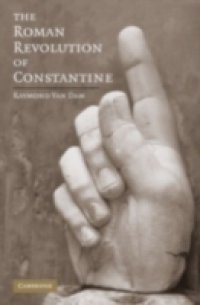The reign of the emperor Constantine (306-337) was as revolutionary for the transformation of Rome's Mediterranean empire as that of Augustus, the first emperor three centuries earlier. The abandonment of Rome signaled the increasing importance of frontier zones in northern and central Europe and the Middle East. The foundation of Constantinople as a new imperial residence and the rise of Greek as the language of administration previewed the establishment of a separate eastern Roman empire. Constantine's patronage of Christianity required both a new theology of the Christian Trinity and a new political image of a Christian emperor. Raymond Van Dam explores and interprets each of these events. His book complements accounts of the role of Christianity by highlighting ideological and cultural aspects of the transition to a post-Roman world.

